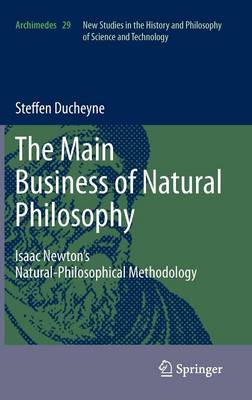

Most ebook files are in PDF format, so you can easily read them using various software such as Foxit Reader or directly on the Google Chrome browser.
Some ebook files are released by publishers in other formats such as .awz, .mobi, .epub, .fb2, etc. You may need to install specific software to read these formats on mobile/PC, such as Calibre.
Please read the tutorial at this link: https://ebookbell.com/faq
We offer FREE conversion to the popular formats you request; however, this may take some time. Therefore, right after payment, please email us, and we will try to provide the service as quickly as possible.
For some exceptional file formats or broken links (if any), please refrain from opening any disputes. Instead, email us first, and we will try to assist within a maximum of 6 hours.
EbookBell Team

4.7
46 reviewsIn this monograph, Steffen Ducheyne provides a historically detailed and systematically rich explication of Newton’s methodology. Throughout the pages of this book, it will be shown that Newton developed a complex natural-philosophical methodology which encompasses procedures to minimize inductive risk during the process of theory formation and which, thereby, surpasses a standard hypothetico-deductive methodological setting. Accordingly, it will be highlighted that the so-called ‘Newtonian Revolution’ was not restricted to the empirical and theoretical dimensions of science, but applied equally to the methodological dimension of science. Furthermore, it will be documented that Newton’s methodology was far from static and that it developed alongside with his scientific work. Attention will be paid not only to the successes of Newton’s innovative methodology, but equally to its tensions and limitations. Based on a thorough study of Newton’s extant manuscripts, this monograph will address and contextualize, inter alia, Newton’s causal realism, his views on action at a distance and space and time, the status of efficient causation in the /Principia/, the different phases of his methodology, his treatment of force and the constituents of the physico-mathematical models in the context of Book I of the /Principia/, the analytic part of the argument for universal gravitation, the meaning and significance of his regulae philosophandi, the methodological differences between his mechanical and optical work, and, finally, the interplay between Newton’s theology and his natural philosophy.